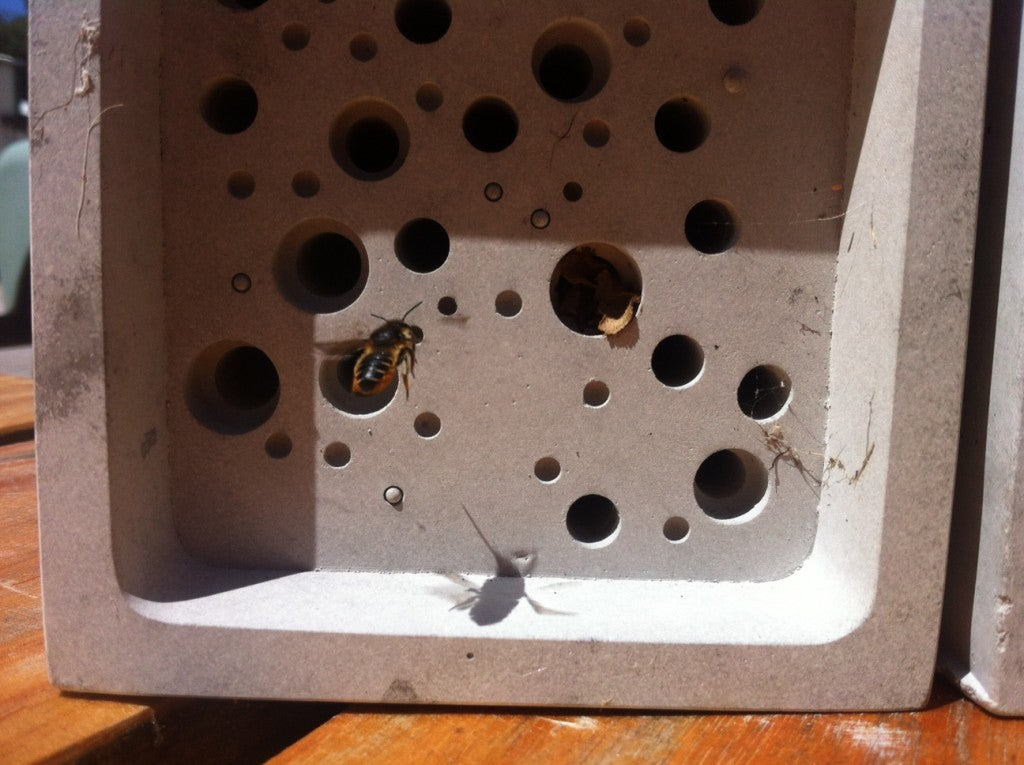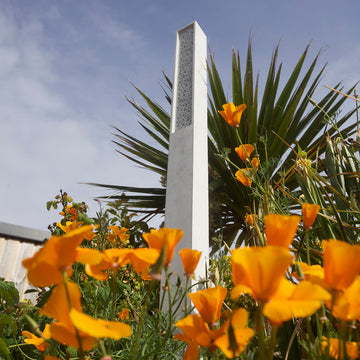Solitary bees are the remarkable, unsung heroes of the pollinating world. Responsible for around a third of all food we eat, they are generally forgotten or confused with their winged relations, bumblebees and honeybees. You can find out more about solitary bees here but there are some simple things you can do in your garden to reward these little guys for the work they do.
1. Just like shopping local - plant local.
By planting local flowers you will have a far better chance of a successful garden and you will also be providing food sources that local bees are already adapted to and familiar with, far easier for them to locate.
2. Choose nectar rich flower varieties.
Do your research to find varieties which will provide the most nectar and pollen for visitors, for example honeysuckle, crab apple and lavenders. And avoid plants with double or multi-petalled flowers, they are usually lacking in nectar and pollen and many insects will find it difficult to access them, for example, camellias and carnations. A mix of local wildflowers can be a simple (and stunning!) way to cater for bees.
3. Try to plant blooms for all seasons.
By giving consideration to seasons when you plant you can make sure that there is a food source all year round for bees, vital for early risers who emerge from the nest and need food quickly. At the very least make sure your garden diner is open from early Spring to late Autumn, with some consideration for winter flowering if you can. 
4. Let nature take its course
If you have the space (and indeed, the inclination!) then one of the greatest things you can do for bees, and other insects, is nothing. Allow a patch of your garden to run wild, don't over-cut the grass or hedges, an abandoned pile of logs could be providing shelter to all manner of garden pollinators, maybe it can stay a while longer?!
5. Use only natural pesticides.
Alongside loss of habitat the increased use of pesticides is one of the biggest threats bees face. If you do your homework you can work with mother nature and avoid the need for any chemicals at all. We will do a further post on this topic soon but, as ever, there's a wealth of info online to help you.
6. Create a bee bath.
Just like us bees need water too. With a little thought and care you can create a simple, perfect 'bee bath' in your garden. Ensure water is not too deep and that you have places bees can land, easily achieved by placing some rocks in the water for example. Make sure you check the water daily and keep it topped up.
7. Provide habitat.
Finally, solitary bees will be looking for somewhere to call home, somewhere where they will feel safe to lay their eggs and leave their offspring to emerge the following spring. You can help the bees by giving them some possible nesting sites in your garden, balcony or allotment. The bee brick and beepot are designed as nesting sites for solitary bees, the beepot even contains space for bee friendly planting. By using these in your garden you can help to encourage these vital pollinators to nest in your space thus ensuring you will have subsequent generations ready to pollinate your plants, and provide a fascinating sight to watch!




